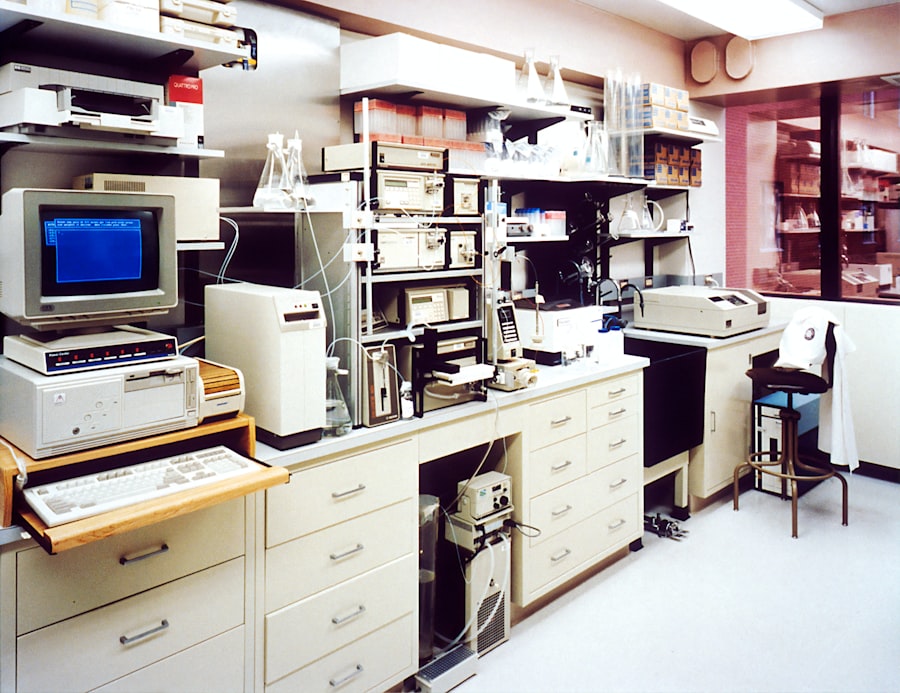A PhD in Clinical Research serves as a cornerstone for advancing knowledge and practice within the field. This advanced degree equips individuals with a comprehensive understanding of research methodologies, biostatistics, and ethical considerations that are critical in conducting clinical trials and studies. PhD holders are trained to design, implement, and analyze complex research projects, ensuring that they adhere to rigorous scientific standards.
Their expertise is not only limited to the technical aspects of research but also extends to the interpretation of data and the translation of findings into clinical practice. This dual focus on both the scientific and practical implications of research makes PhD graduates invaluable assets in clinical settings. Moreover, the role of a PhD in Clinical Research often involves collaboration with multidisciplinary teams, including physicians, statisticians, and regulatory experts.
These professionals are tasked with navigating the intricate landscape of clinical trials, which includes patient recruitment, data management, and compliance with regulatory requirements. A PhD holder’s ability to communicate effectively across disciplines enhances the overall quality of research projects. They often take on leadership roles, guiding teams through the complexities of clinical research while fostering an environment that encourages innovation and critical thinking.
This collaborative approach is essential for addressing the multifaceted challenges that arise in clinical research.
Key Takeaways
- PhDs play a critical role in designing, conducting, and analyzing clinical research studies.
- Having a PhD provides advanced expertise and credibility that enhance research quality and innovation.
- PhDs contribute significantly to scientific advancements and the development of new clinical methodologies.
- Challenges for PhDs include balancing research demands with clinical applications and securing funding.
- Future trends highlight increasing opportunities for PhDs to lead interdisciplinary and technology-driven clinical research.
Advantages of Having a PhD in Clinical Research
One of the primary advantages of obtaining a PhD in Clinical Research is the depth of knowledge it provides. This advanced education allows individuals to develop specialized skills in areas such as epidemiology, pharmacology, and health outcomes research. Such expertise is crucial for designing studies that can yield meaningful results and contribute to evidence-based medicine.
For instance, a PhD graduate may focus on developing new methodologies for assessing patient-reported outcomes, which can significantly impact treatment protocols and patient care strategies. Additionally, having a PhD can enhance career prospects and open doors to leadership positions within academic institutions, pharmaceutical companies, and government agencies. Many organizations prioritize candidates with advanced degrees for roles that involve strategic decision-making and oversight of research initiatives.
The credibility associated with a PhD can also facilitate networking opportunities, allowing graduates to connect with influential figures in the field. This network can be instrumental in securing funding for research projects or collaborating on high-impact studies that advance clinical knowledge.
Contributions of PhDs to Advancing Clinical Research

PhDs play a pivotal role in advancing clinical research through their contributions to innovative study designs and methodologies. Their rigorous training enables them to identify gaps in existing literature and propose novel approaches to address these deficiencies. For example, a PhD researcher might develop a new statistical model that improves the accuracy of predicting patient outcomes in clinical trials.
Such advancements not only enhance the validity of research findings but also contribute to the overall body of knowledge within the field. Furthermore, PhDs are often at the forefront of translating research findings into clinical practice. They engage in knowledge dissemination activities, such as publishing articles in peer-reviewed journals or presenting at conferences, which helps bridge the gap between research and application.
By sharing their insights and findings with the broader medical community, they facilitate the adoption of evidence-based practices that can improve patient care. Their contributions extend beyond academia; many PhD holders work closely with healthcare providers to implement research findings into clinical guidelines, ensuring that patients benefit from the latest advancements in medical science.
Challenges Faced by PhDs in Clinical Research
| Challenge | Description | Impact on PhDs | Common Solutions |
|---|---|---|---|
| Funding Limitations | Difficulty securing grants and financial support for research projects. | Delays in research progress and limited scope of studies. | Applying to multiple funding sources, collaborating with industry partners. |
| Regulatory Compliance | Complex and evolving regulations governing clinical trials and patient data. | Increased administrative workload and risk of non-compliance penalties. | Training in regulatory affairs, hiring compliance specialists. |
| Interdisciplinary Collaboration | Challenges in coordinating with clinicians, statisticians, and other specialists. | Communication barriers and delays in project milestones. | Regular interdisciplinary meetings, use of collaborative platforms. |
| Data Management | Handling large volumes of clinical data with accuracy and security. | Potential data loss, errors, and breaches affecting study validity. | Implementing robust data management systems and training. |
| Work-Life Balance | High workload and pressure to publish affecting personal life. | Burnout and reduced productivity. | Time management strategies, institutional support for mental health. |
| Career Progression | Limited academic positions and unclear career pathways. | Job insecurity and career dissatisfaction. | Networking, skill diversification, exploring industry roles. |
Despite their significant contributions, PhDs in Clinical Research face numerous challenges throughout their careers. One major hurdle is securing funding for research projects. The competitive nature of grant applications means that even well-designed studies may struggle to obtain financial support.
This challenge can be particularly daunting for early-career researchers who may lack a track record of successful funding applications. The pressure to produce publishable results while navigating funding constraints can lead to stress and burnout among PhD holders. Another challenge is the evolving regulatory landscape surrounding clinical research.
As new guidelines and policies emerge, PhDs must stay informed about changes that could impact their work. This requires continuous education and adaptation, which can be time-consuming and resource-intensive. Additionally, the increasing emphasis on patient-centered research necessitates that PhDs engage with diverse populations and consider ethical implications more deeply than ever before.
Balancing these demands while maintaining high standards of scientific rigor presents a significant challenge for many researchers.
Opportunities for PhDs in Clinical Research
The landscape of clinical research offers numerous opportunities for PhDs to make meaningful contributions across various sectors. One prominent avenue is academia, where PhD holders can pursue faculty positions that allow them to teach future generations of researchers while conducting their own studies. These roles often come with the added benefit of access to institutional resources and collaborations with other experts in the field.
In addition to academic positions, there are ample opportunities within the pharmaceutical and biotechnology industries. Companies are increasingly seeking individuals with advanced degrees to lead clinical trials, manage regulatory submissions, and oversee data analysis. The demand for skilled researchers who can navigate complex clinical environments continues to grow as new therapies are developed and brought to market.
Furthermore, government agencies and non-profit organizations also require PhD-level expertise to inform public health policies and conduct epidemiological studies that address pressing health issues.
The Influence of PhDs on Clinical Research Practices

PhDs significantly influence clinical research practices through their commitment to evidence-based methodologies and ethical standards. Their training emphasizes the importance of rigorous study design and statistical analysis, which helps ensure that research findings are reliable and applicable to real-world settings. By advocating for high-quality research practices, PhD holders contribute to the integrity of clinical trials and studies, ultimately enhancing public trust in medical research.
Moreover, PhDs often serve as mentors for junior researchers and students entering the field. Through mentorship programs or informal guidance, they impart essential skills related to research design, data analysis, and ethical considerations. This mentorship not only fosters the development of future leaders in clinical research but also promotes a culture of excellence within research teams.
By instilling these values in emerging researchers, PhDs help shape the future direction of clinical research practices.
Future Trends in Clinical Research and the Role of PhDs
As clinical research continues to evolve, several trends are emerging that will shape the future landscape of the field. One notable trend is the increasing integration of technology into research methodologies. The use of big data analytics, artificial intelligence (AI), and machine learning is transforming how researchers collect and analyze data.
PhDs equipped with skills in these areas will be well-positioned to lead innovative studies that leverage these technologies for improved patient outcomes. Another trend is the growing emphasis on personalized medicine, which tailors treatment approaches based on individual patient characteristics. This shift requires researchers to adopt more sophisticated study designs that account for genetic variations and other factors influencing treatment efficacy.
PhDs will play a crucial role in developing these personalized approaches by conducting studies that explore how different populations respond to various interventions. Their expertise will be essential in navigating the complexities associated with this paradigm shift in clinical practice.
The Importance of PhDs in Advancing Clinical Research
The role of PhDs in Clinical Research is indispensable for driving innovation and improving patient care within healthcare systems worldwide. Their extensive training equips them with the skills necessary to tackle complex research questions while adhering to ethical standards and regulatory requirements. As they contribute to advancing methodologies, disseminating knowledge, and mentoring future researchers, PhDs continue to shape the trajectory of clinical research.
In an era marked by rapid advancements in technology and an increasing focus on personalized medicine, the contributions of PhDs will be more critical than ever. Their ability to adapt to emerging trends while maintaining a commitment to scientific rigor ensures that clinical research remains at the forefront of medical progress. As we look toward the future, it is clear that PhDs will play a vital role in addressing the challenges facing healthcare today and advancing our understanding of human health through rigorous scientific inquiry.




